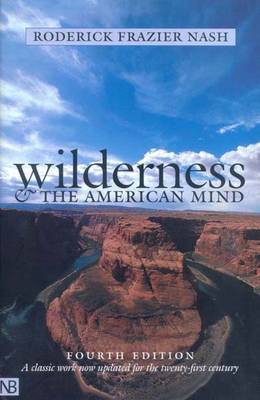
Roderick Nash's classic study of America's changing attitudes toward wilderness has received wide acclaim since its initial publication in 1967. The Los Angeles Times has listed it among the one hundred most influential books published in the last quarter century, Outside Magazine has included it in a survey of "books that changed our world", and it has been called the "Book of Genesis for environmentalists". Now a fourth edition of this highly regarded work is available, with a new preface and epilogue in which Nash explores the future of wilderness and reflects on its ethical and biocentric relevance.
It’s a good reminder every time I’m made aware that our ideas aren’t our own, that our society’s ideas aren’t the only ones, that whatever current intellectual revolution we find ourselves in, it’s the temporary result of hundreds or thousands of cumulative years of ideas. If it comes in the form of a book on wilderness, so be it. And even, it’s all the more apt that it should come from a book on wilderness.
“A millennium is almost meaningless geologically; in terms of human history, however, it is an understandable unit of time.”
Even when this book tends towards the dry— more academic than passionate— it’s a great look at our changing attitudes and philosophies over the past century and a half. If a millennium is a blip on the geologic radar, well, it’s fun to extrapolate down to our less-than-a-blip history. Nash tackles this in an expansive, no-stone-unturned kind of way, instead of focusing on a specific person or place for more than a chapter. This will be my reference, and a good one, when I’m reading the passionate books.
Reading updates
-
Started reading
-
14 August, 2013:
Finished reading
-
14 August, 2013:
Reviewed
